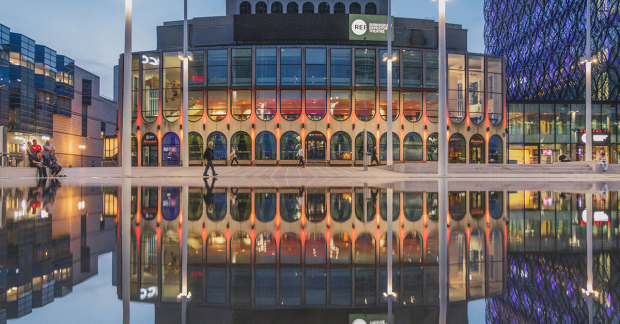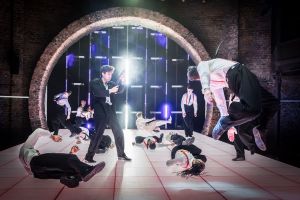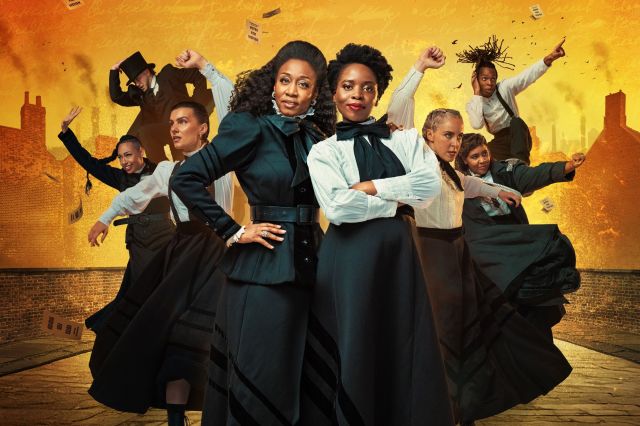Plays in the Parks – Birmingham Rep's incredible WWII story
Our ”Theatres in Crisis” series continues with the Birmingham Repertory Theatre and how the venue was able to not only survive but thrive during the Blitz

© Ross Jukes
"In situations like this, people do kind things. The Rep will survive – it has to" – Eileen Minnock, Birmingham Rep box office member for over 40 years
As the UK's third most heavily bombed city during WWII, Birmingham's urban landscape was completely transformed by the conflict. The aerial attacks caused irreversible damage to some of the city's architecture but for the buildings that survived, the Blitz is now inevitably tied to their history. The Birmingham Repertory Theatre is one case with a fascinating story.
After the war's outbreak the Rep was initially able to limp on and stay open in the face of increasingly challenging circumstances. Air raids and blackouts resulted in constantly shifting performance times, not to mention the fact that the chance of keeping a cast united throughout a production was slim. If one of the actors was called up by the army, the theatre was powerless to stop the person leaving. It must have been quite a productive time for understudies.
Despite the company's best efforts, there came a time when the venue was forced to shut. A German bomb hit the building which held the theatre's wardrobe and 30 years of art, seamery and costumes went up in flames. By December 1940, the ferocity of the air raids closed the Rep's doors for two years but this did not spell the end of theatre in the city during WWII.
The Lord Mayor of Birmingham suggested to the Rep's founder and director Barry Jackson that he produce a series of Plays in the Parks, productions staged outdoors in Birmingham's green spaces and accessible to the public. Using the Mayor's emergency relief fund, as well as support from CEMA (Council for the Encouragement of Music and the Arts), Jackson had the necessary financial backing to bring the idea to life. Although he wasn't directing the plays himself, the Rep's founder was the driving force behind the project and used the empty theatre as an administrative centre.
The Plays in the Parks scheme was a success and about 36,000 people visited Cannon Hill, Aston, Handsworth and Ward End parks to watch productions across the wartime summer seasons. The project's triumph led to a boom in arts participation in the second half of WWII, which was bolstered when theatres like the Rep were able to reopen in 1942. Interestingly, one of the final outdoor plays starred a young Paul Scofield as Horatio in Hamlet, a notable talent that was nurtured through the scheme and able to flourish once the conflict had ended.
Social distancing rules might make a repeat of the initiative impossible today but the Rep is keeping its audiences engaged in other ways. Their production of The Importance of Being Earnest with Leicester's Curve is being streamed online for free and the venue is also trying to clear rights to offer the public the legendary 1993 production of The Snowman.
The Rep's artistic director Sean Foley has also been encouraged by the positive reaction to potentially moving youth summer schools online if the virus is still an issue. What has humbled him more however is the incredible generosity of the Rep's audiences in the last few weeks – over 60 per cent of people with tickets for cancelled shows have either donated the cost or taken a credit note with the theatre. Just as everyone pulled together during the Plays in the Parks, the spirit of Birmingham is proving equally critical in moving the Rep through the coronavirus.
This article was made possible thanks to the knowledge and generosity of Professor Claire Cochrane.


















